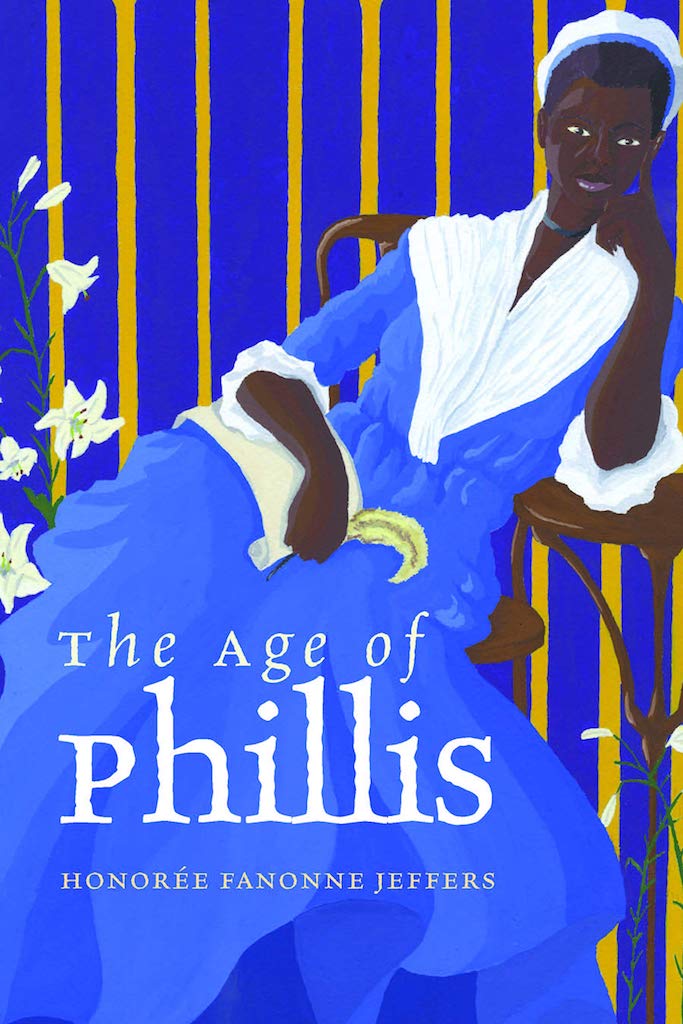Mercy, girl.What the mother might have said, pointingat the sun rising, what makes life possible.Then, dripped the bowl of water,reverent, into oblivious earth.Was this prayer for her?Respect for the dead or disappeared?An act to please a genius child?Her daughter would speakof water, bowl, sun—light arriving,light gone—sometime after the nice white ladypaid and named her for the slave ship.Mercy: what the child called Philliswould claim after that sea journey.Journey.Let’s call it that.Let’s lie to each other.Not early descent into madness.Naked travail among filth and rats.What got Phillis over that sea?What kept a stolen daughter?Perhaps it was mercy,Dear Reader.Mercy,Dear Brethren.Water, bowl, sun—a mothering, God’s milky sound.Morning shards, and a mother wonderedif her daughter forgot her real name,refused to envision the rest:baby teeth missingand somebody wrapping her treasure(barely) in a dirty carpet.‘Twas mercy.You know the story—how we’ve lied to each other.
An Issue of Mercy #1
Feature Date
- November 18, 2020
Series
Selected By
Share This Poem
Print This Poem
“An Issue of Mercy #1“ from The Age of Phillis © 2020 by Honorée Fanonne Jeffers.
Published by Wesleyan University Press and reprinted with permission.

Honorée Fanonne Jeffers is a poet whose work examines culture, religion, history, and family. She is the author of four other books of poetry, including The Glory Gets, and the recipient of the 2018 Harper Lee Award for Literary Distinction, as well as fellowships from the National Endowment for the Arts and the Witter Bynner Foundation through the Library of Congress. An elected member of the American Antiquarian Society, she teaches creative writing at the University of Oklahoma where she is a professor of English.

Middletown, Connecticut
"There are few historically consequential poets whose lives are rooted so deeply beneath the bloody red sea and the bloody red, white, and blue shores of America as that of Phillis Wheatley. The excavation and the telling of her complicated tremendous life, that has everything to do with how we have come to know each other, eye to eye, in this 21st century, would take a lifetime of research and the courageous delicate use of every light-filled exacting tool a poet could hold in her hand. The work of a lifetime is exactly what Honorée Jeffers, poet extraordinaire of her time, has accomplished in The Age of Phillis, a poetry book that gentles to the page the life and times of Phillis Wheatley, America's first published Black woman poet. It is a book teeming and timeless with the long-overlooked, the sparkling unknown, the ancillary biographical, the nuanced historical, the mighty minutiae, and the critical antidotal. We need this Genius Child reader in our open hands right now."
—Nikky Finney, author of Head Off & Split: Poems
"Jeffers delivers history with a gut-punch in her sweeping overview of the late eighteenth century, the Atlantic slave trade, and the life of Phillis Wheatley. Empathy, deep research, and a keen intellect expand every poem. Diamond-faceted, Jeffers' poems go beyond mere facts and drive the imagination into searing truth."
—Janice. N. Harrington, author of Primitive: The Art and Life of Horace H. Pippin
Poetry Daily Depends on You
With your support, we make reading the best contemporary poetry a treasured daily experience. Consider a contribution today.



